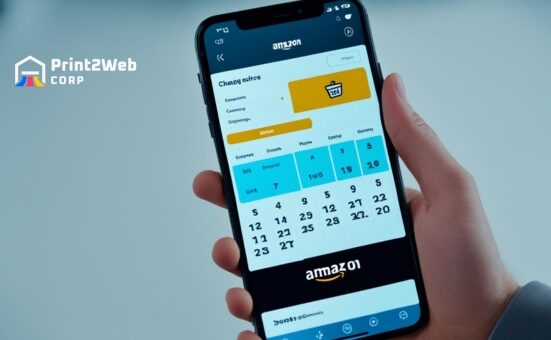Have you ever thought about starting your own Vending Machine Business? Imagine being your boss, with machines working for you around the clock. The idea might seem daunting at first, but I promise, if I can do it, so can you! A vending machine business could be that golden ticket you’ve been searching for. It’s a world where small investments can yield a steady flow of income and where strategic placement means everything.
I was wondering how to start. It’s not rocket science. You’ll need to choose what type of vending machines to use – food and drinks or specialty items. Then, find the perfect locations with loads of people walking by every day. After that comes the money part – budgeting for startup costs and deciding whether to buy new or used machines. Next up are the formalities: crafting a solid business plan and getting your venture registered with all the right permits and licenses in place.
What You’ll Learn Here:
- Simple steps to start your vending empire
- Essential tips on choosing the right location
- Budgeting advice for initial setup costs
- Pros and cons of buying new vs used machines
- How to craft a business plan that wins
- Navigating permits – is easier than you think!
- Smart stocking tactics for maximum profit
- Marketing tricks that give you an edge
Begin with a Vending Machine Business
Starting a vending machine business is an exciting venture. It gives you the chance to earn money through passive income. But where do I begin? The first steps involve choosing the right type of vending machine and finding the best location for it.
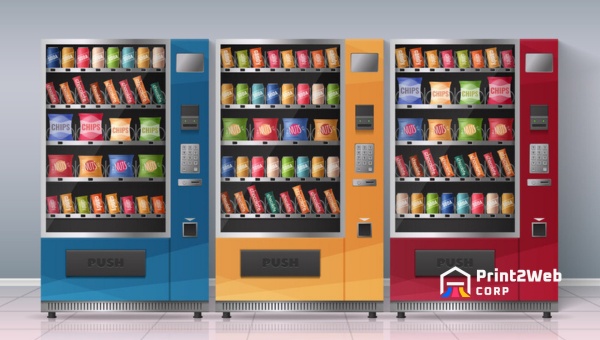
So, let’s dive into these two crucial steps.
Choose your Type of Vending Machine Business
When you start, you’ll have to pick what kind of vending machine business you want to run. There are food and beverage machines, which are quite common. These are the ones where you get snacks, drinks, and sometimes even fresh food or coffee.
On the other hand, we also have bulk and specialty vending machines. Bulk ones usually dispense things like gumballs, stickers, or small toys. Specialty machines might sell electronics, personal care items, or other unique products.
Think about what people in your area might need on the go. If they’re always looking for a quick snack or drink, then food and beverage machines could be great for you. But if there’s a spot where kids hang out often, or tourists come by searching for something special—maybe bulk or specialty vending machines would work better there.
Research the Ideal Locations for a Vending Machine Business
Finding the perfect spot is key! You want areas with lots of people walking by—what we call high-foot traffic areas—like malls, airports, schools, or busy sidewalks. But that’s not all; think about your target audience too! If I’m selling healthy snacks and drinks, placing my machine near gyms makes sense because health-conscious folks go there often.
Watch out for the competition as well; too many similar businesses around might make it harder to stand out.
I also look into lease agreements—if I’m placing my machine on someone else’s property—and keep local laws in mind since some places have special rules about vending businesses.
Security is another big point! Let’s say I don’t want someone breaking into my machine late at night; that means locations that are lit up and safe from theft would be ideal. Last but not least, remember seasonal trends! A place might be busy in summer but empty when it gets cold—which will surely impact how much I sell.
By threading through these factors carefully—one step at a time—I should find just the right street corner (or hallway) where my vending machine could thrive!
Also Read:
Finance your Vending Machine Business
To start a vending machine business, you need to think about money. It’s not just about buying the machines.

There’s more to it, like what you fill them with and where you put them. Let’s walk through how to plan your budget and make smart choices when getting your vending machines.
Create an Effective Budget for Your Venture
When I plan my budget, I write down every cost that will come up. Here are the things I consider:
- Startup Costs: How much will it cost me to start my business? This includes any fees to set up my company.
- Machine Prices: What’s the price tag on each vending machine? It can change depending on what kind of machine it is.
- Inventory Fares: What am I going to put in the machines, and how much will it cost me?
- Location Levies: If I’m putting machines in someone else’s space, what do they want in return?
- Money Spent on Repairs: Machines can break down. How much might fix-ups set me back?
Creating a good budget means adding all these costs together so that there are no surprises later.
New or Used? Purchasing Choices for Vending Machines
Now, let’s talk about getting your hands on some vending machines. You could buy new ones, pick used ones, or even get refurbished ones which are old but fixed to seem like new.
New Vending Machines – The upside is everything’s fresh out of the box; they usually last longer and have fewer issues at first. But they do cost more upfront.
Used Vending Machines – These are cheaper than new ones right away but might need more repairs sooner because they’ve already been used by someone else before.
Refurbished Vending Machines – A middle ground between new and used. Factories fix these up so that they work almost as well as new models but for less money.
Each choice has its benefits depending on your budget and how you want to run your business. If you have a bit more cash and want fewer problems early on, go with new machines. If saving money from the start is key for you, then used or refurbished might be better options.
Setting up my own business expenses wisely I meant thinking ahead not only about buying stuff but also keeping those things running without spending too much later down the line.
Growing Your Vending Machine Business
Growing a vending machine business can be exciting. It’s like when you plant seeds and watch them grow into a big tree, except your seeds are the vending machines, and the big tree is your successful business.

To make sure everything goes as planned, you’ll want to have two important things sorted out: a solid business plan and the right paperwork. Let me break these down for you.
Craft a Comprehensive Vending Machine Business Plan
First off, I need an excellent business plan. Think of this as my map for treasure hunting – it guides me in the right direction. To start with, I figure out what goals I have for my vending machine business; do I want to be all over town or just at one spot? How much money do I expect to make?
In my plan, I also think about what kinds of products people might like. Maybe healthy snacks are becoming popular, or perhaps energy drinks are flying off shelves where athletes hang out.
Another key part is knowing how much everything will cost and how those costs will be covered. Will it be from savings or maybe a loan from family or friends? Knowing where the money comes from helps me keep track of it.
But that’s not all – there’s competition too! So in my plan, I also need to think about what makes my vending machines stand out. Maybe they’re in better spots around town or offer something unique that nobody else has.
Having clear steps outlined makes things less confusing down the line and shows others that my vending machine venture is serious stuff if ever they wonder about investing their time or money with me.
Registration Process for Your Vending Machine Enterprise
- Having an awesome plan isn’t enough by itself; my business needs to follow the rules, too – which means getting registered properly. First up, picking a good name is crucial because it’s how people will remember me. It should be easy to say and give an idea of what I sell.
- Next up is setting up the type of company – like if it’s just going to be me (a sole proprietor) or if there’s someone else involved (a partnership). And if things really take off, forming a corporation might make sense since that can protect personal assets better.
- The government also wants its share, so getting the necessary licenses and permits is not something to skip. Each state has different rules, so checking with local government offices helps get this right without unnecessary setbacks later on.
- And don’t forget insurance! It keeps both machines and customers safe, which creates trust – very important for any shopkeeper, even one whose shop needs plugging in!
- Getting registered may feel like a lot, but once done correctly, it saves heaps of headaches later down the road, so taking these steps seriously sets my vending machine business up well for growing strong.
Also Read:
Ongoing Operation of Your Venture
Running a vending machine business means more than just setting machines up and waiting for the money to come in.
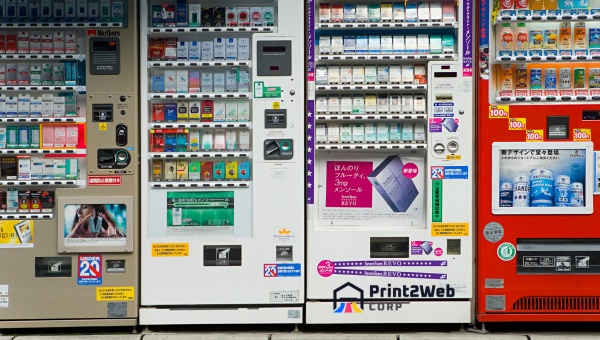
To keep things smooth and make sure you’re making as much money as possible, there are a couple of things you need to focus on: how often you fill your machines with products and how you tell people about your vending business.
Stocking Tactics for Successful Returns from Your Machines
When it comes to keeping your machines filled, timing is everything. You want to find that sweet spot where you’re not visiting too often (wasting time and gas money) but also not letting your machines run empty (losing sales). I’ve found that the best way is to check in regularly at first. This helps you figure out how quickly items are selling.
Once you have a good idea of how fast stuff gets bought, set up a schedule. This might be once a week or multiple times per week—it all depends on the location and what’s being sold.
Getting inventory can also be easy if you plan right. Buying wholesale is often cheaper than buying small amounts at regular stores. Always look for deals and, when possible, buy in bulk. It’ll save money over time.
Remember to watch what sells fast and what doesn’t move as much. Replace the not-so-popular items with different products that customers might like better.
Marketing Strategy for A Competitive Edge
For marketing, think about offering deals or discounts from time to time—it catches people’s interest! Put signs on your machines telling them about the special offers; it’s an easy way to grab attention.
Also, think about teaming up with local businesses around where your vending machines are placed. Maybe they can tell their customers about your offerings while promoting their own business – working together like this is great for both sides!
Keep sharing news of any new products or special promos on social media if possible; sometimes, online word-of-mouth travels fast!
So there we have it—a solid plan that should keep those vending machine wheels rolling smoothly forward!
Also Read:
Evaluating Performance and Maintenance Issues
When I run a vending machine business, keeping an eye on how things are going is a must. It’s not just about putting machines in places and waiting for coins to drop.
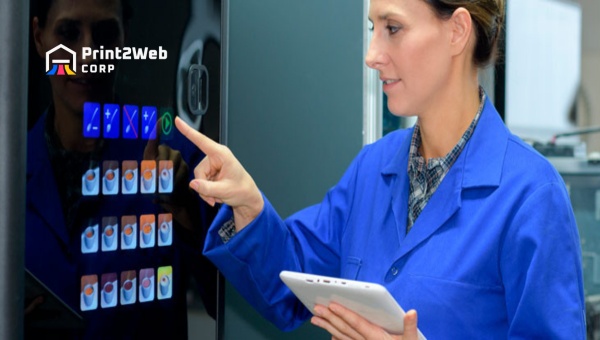
I need to make sure everything works well and that I’m making the most of them.
Monitoring & Maintaining Your Business Operations
Inventory tracking is a big deal in this business. It means knowing what’s selling and what’s not, so I don’t spend money on snacks or drinks nobody wants. By keeping track of this, I save time because I only restock the popular items and money. After all, there’s less waste.
The timing of machine maintenance is also key. If one machine stops working, that’s money lost every minute it’s down. Regular check-ups can prevent breakdowns from happening at the worst times. It’s like taking care of a car – frequent oil changes keep it running smoothly.
Sales Analytics – The Big Picture
Sales analytics means looking at numbers to see how the business is doing. What snacks are selling out quickly? Which ones hardly ever need restocking? When I understand patterns like these, then I can pick better products for each place my machines are in.
Another tip: price changes can make a difference too! Sometimes lowering prices just a bit can get more people to buy, which could lead to earning more overall.
Collecting Revenue Responsibly – What Works Best?
Collecting cash from my machines should be safe and smart. First off, setting up a schedule for collecting – maybe weekly or daily – helps keep things consistent without overflow or shortages in change within the machines.
For safety, it’s best not to go alone especially if collections are substantial; taking someone with me or using a secure collection service might be smarter choices as handling cash always has risks attached to it.
All this effort in monitoring inventory sales analytics along with steady cash collection makes sure the vending machine business keeps rolling on successfully without hiccups.
Are Vending Machine Businesses Profitable?
Starting a vending machine business can be an exciting way to earn money. A lot of people wonder, “Can I really make good money with vending machines?” The answer isn’t simple because it depends on different things, like where you put your machines or how many people use them.
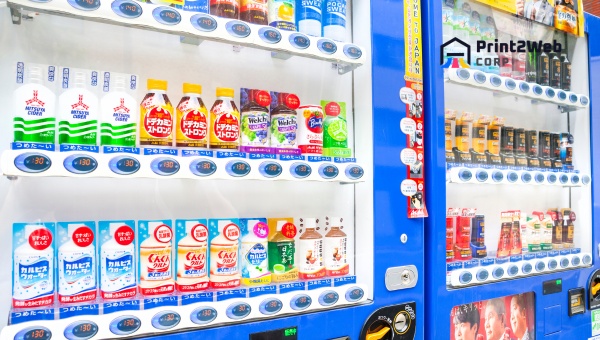
But yes, a well-planned vending machine business can be profitable.
Benefits of Starting Up in this Industry
- Easy to Manage: Once you set up your vending machines, they do most of the work for you. You don’t need to be there all day; you just need to make sure they are full and working right.
- Flexible Hours: One great thing about the vending machine business is that it doesn’t ask for a fixed schedule. You can go fill up your machines or collect money when it works best for you.
- Lower Costs: When compared to other businesses, starting a vending machine business usually costs less money upfront. You don’t have to pay for a big space or lots of employees.
- Money All Day and Night: Vending machines make money around the clock as long as they are in places where people want snacks or drinks at any time – like airports, hotels, or schools.
Disadvantages You Should Know About
- Machine Breakdowns: Like all machines, sometimes they break down. Fixing them costs both time and money, and during this period they aren’t earning any income.
- Competition: There might be other vending machines around that sell similar stuff as yours. This means you have to really think about what makes your products special so people choose yours instead.
- Slow Growth: Growing takes time; adding more machines means spending more on buying new equipment and finding good spots for them – which isn’t always quick or easy!
- So yes, while there might be some tough parts about running a vending machine business, there are also some big wins that come with it too!
Also Read:
Frequently Asked Questions
How much does it cost to start a Vending Machine Business?
The cost to start a vending machine business varies, but you can expect to spend anywhere from a few hundred dollars for a used machine to several thousand dollars for a new one. Don’t forget additional costs like inventory, location fees, and maintenance.
Do I need special permits or licenses for my Vending Machine Business?
Yes, most places require you to have the proper permits and licenses. This might include a general business license, tax permits, and specific vending machine operations permits. Check your local laws to see what’s needed.
Where is the best place to put my vending machines?
The best locations are high-traffic areas with lots of people like malls, airports, train stations, or schools. Make sure there’s not too much competition and that the area has your target audience.
Can I make good money from a Vending Machine Business?
If managed well with proper location selection and regular maintenance of machines with hot-selling items stocked in them, vending machine businesses can indeed be profitable. It also depends on how effectively you scale your operations and control costs.
Conclusion
Starting a vending machine business can be a smart choice for entrepreneurs looking to enter a market with relatively low startup costs and potential for passive income. By carefully selecting the right type of machines, securing prime locations, and effectively managing finances, inventory, and marketing strategies, you can create a successful enterprise.
While challenges exist, such as competition and maintaining your machines, the rewards from running vending operations responsibly can be considerable. Weigh the pros and cons thoroughly, but know that with due diligence, a vending machine business may very well turn into a profitable venture.



